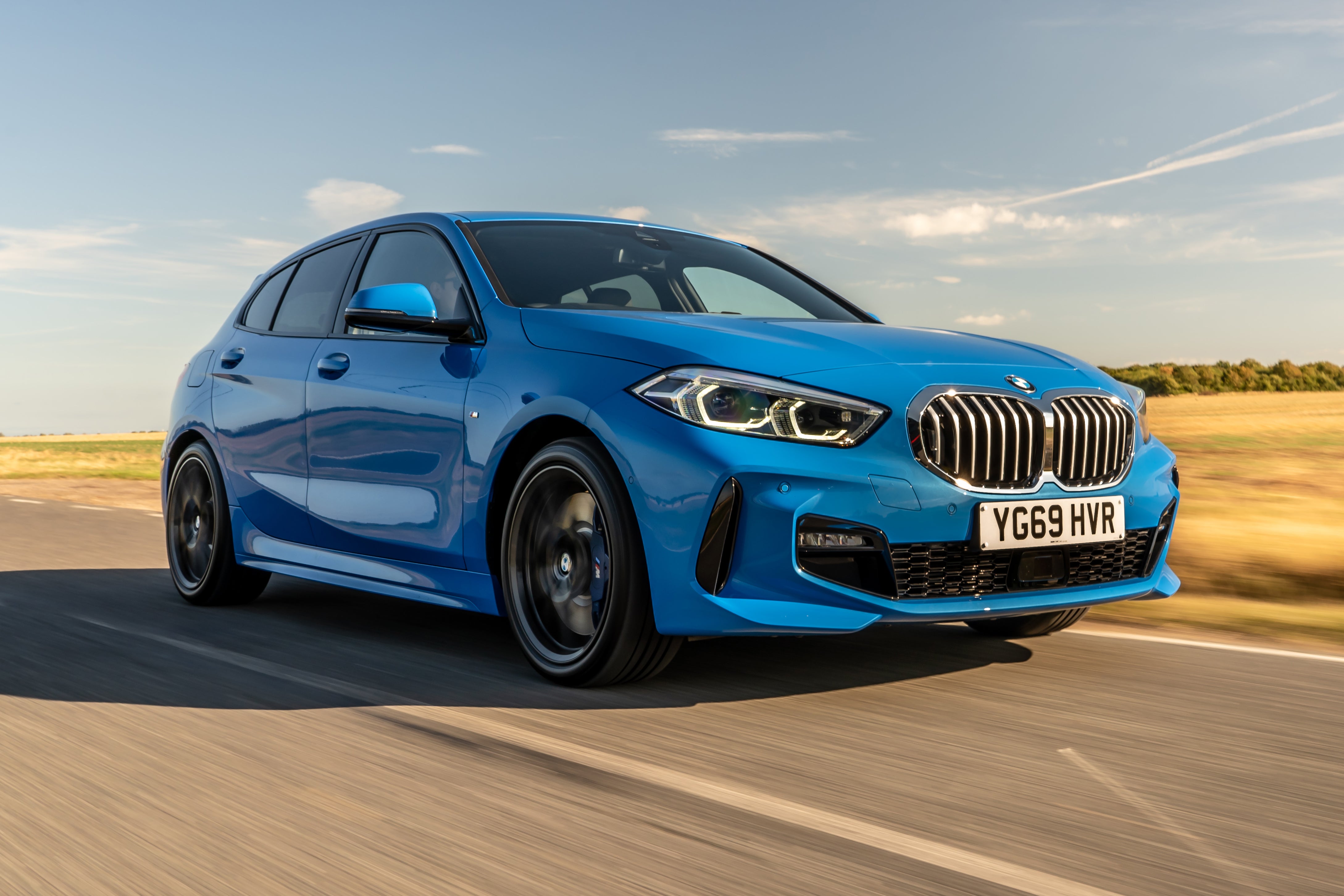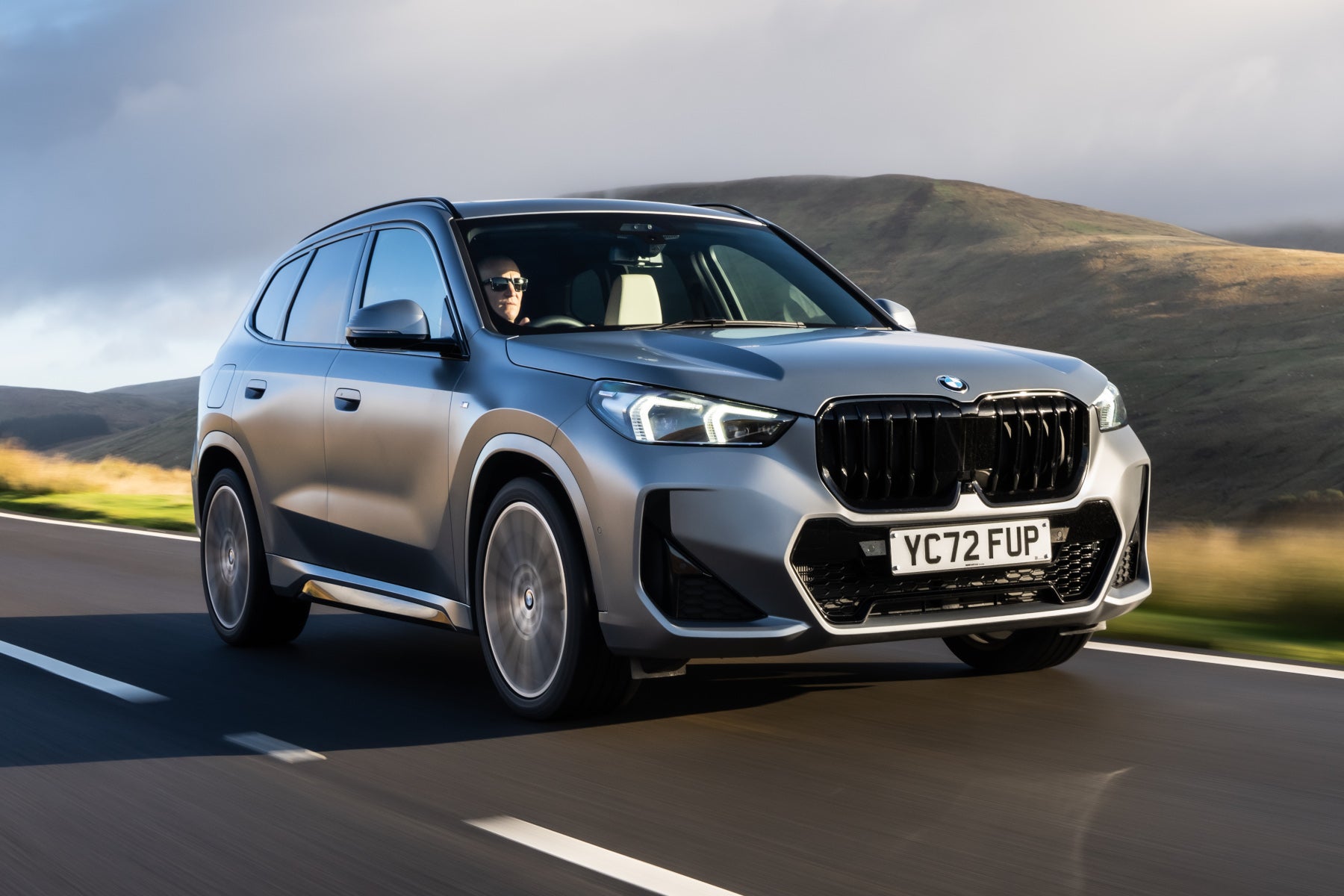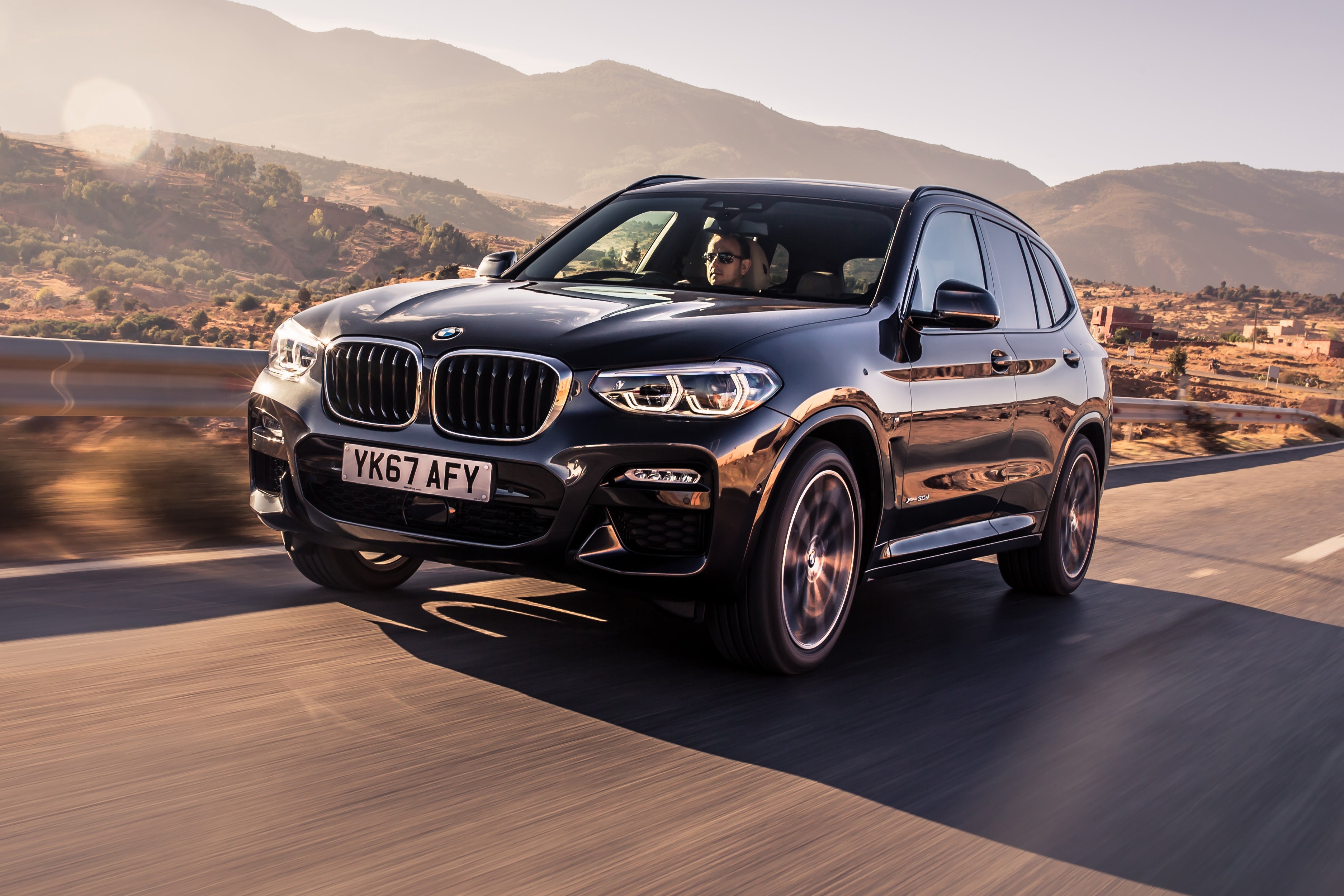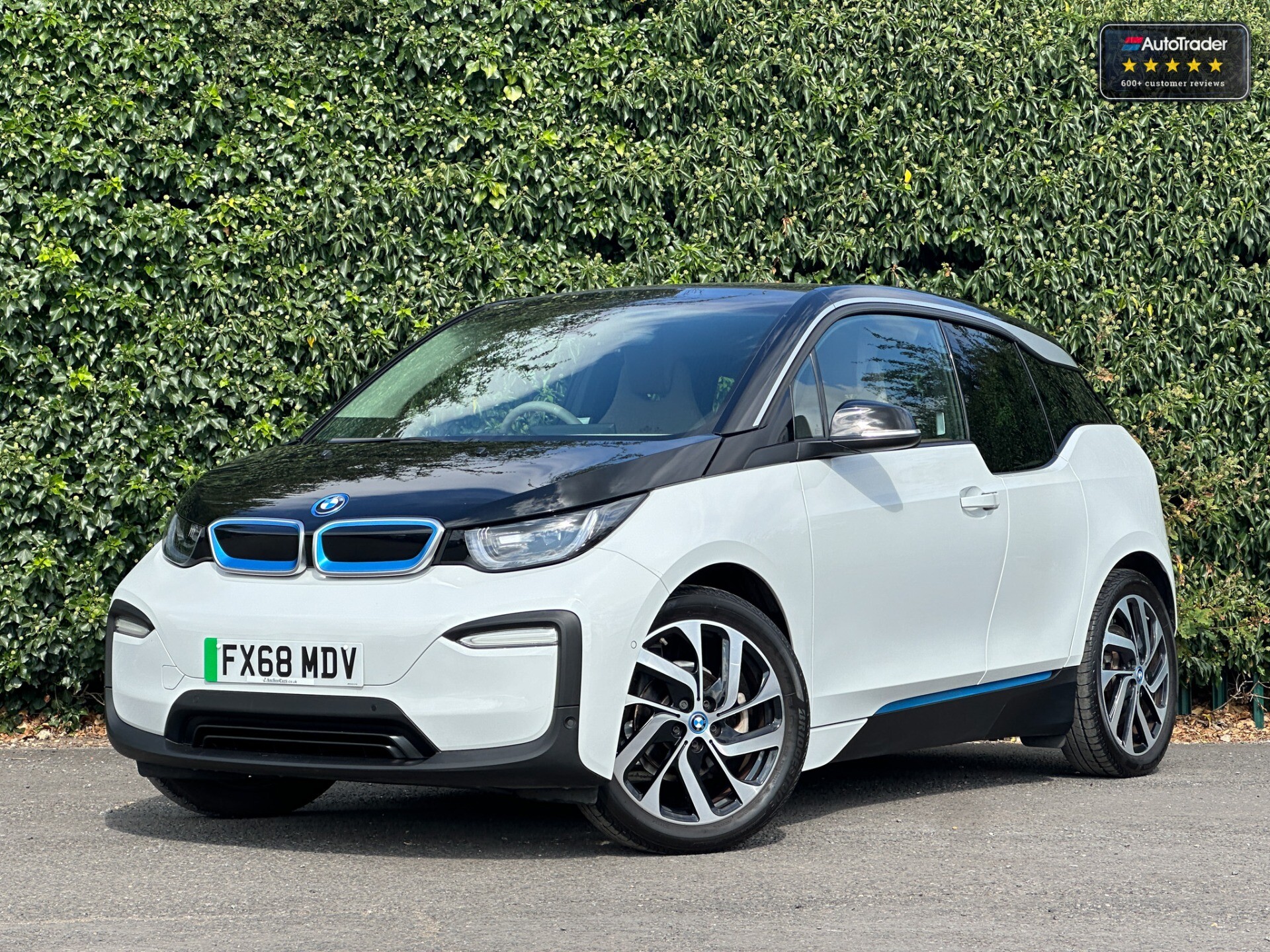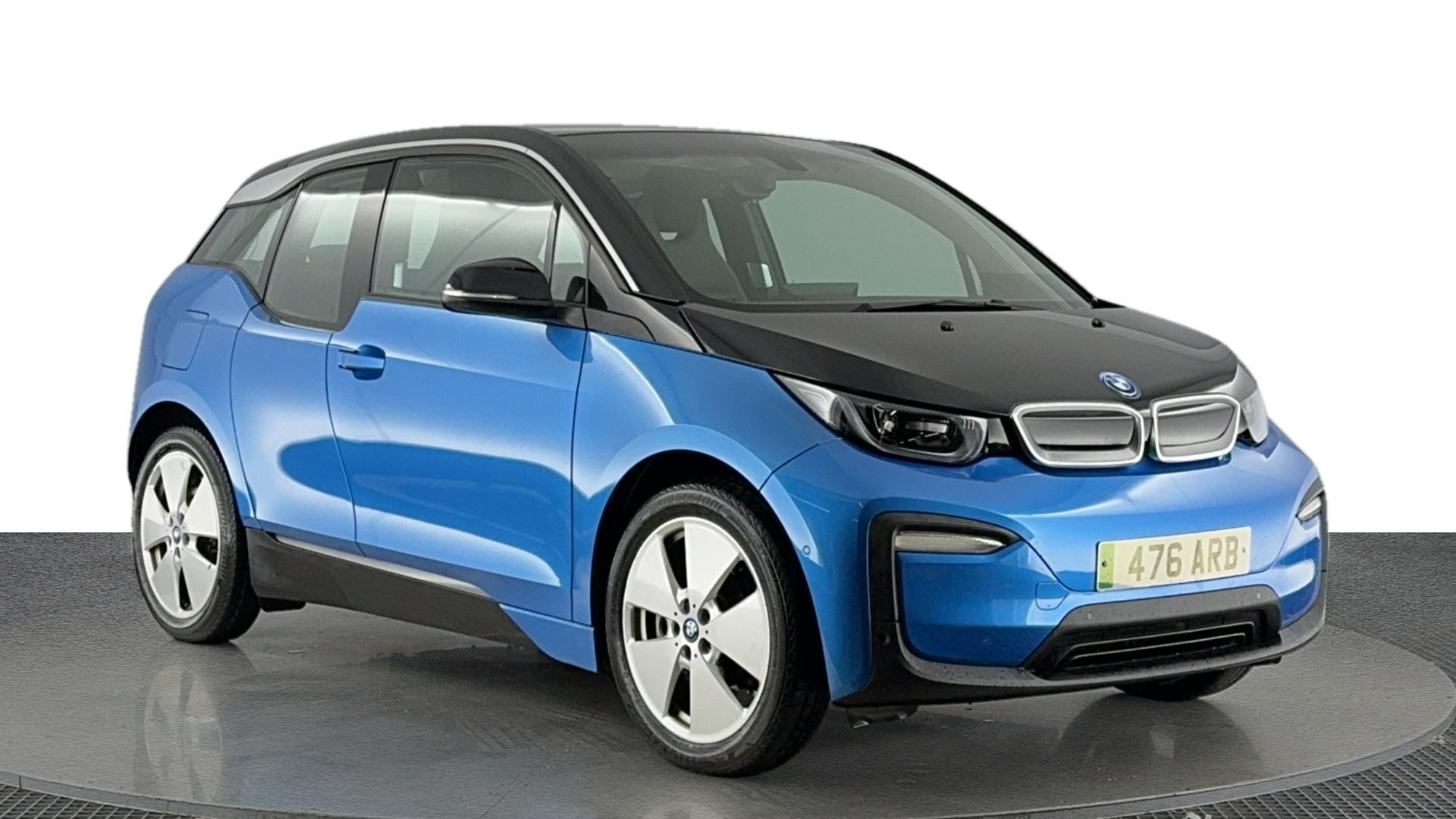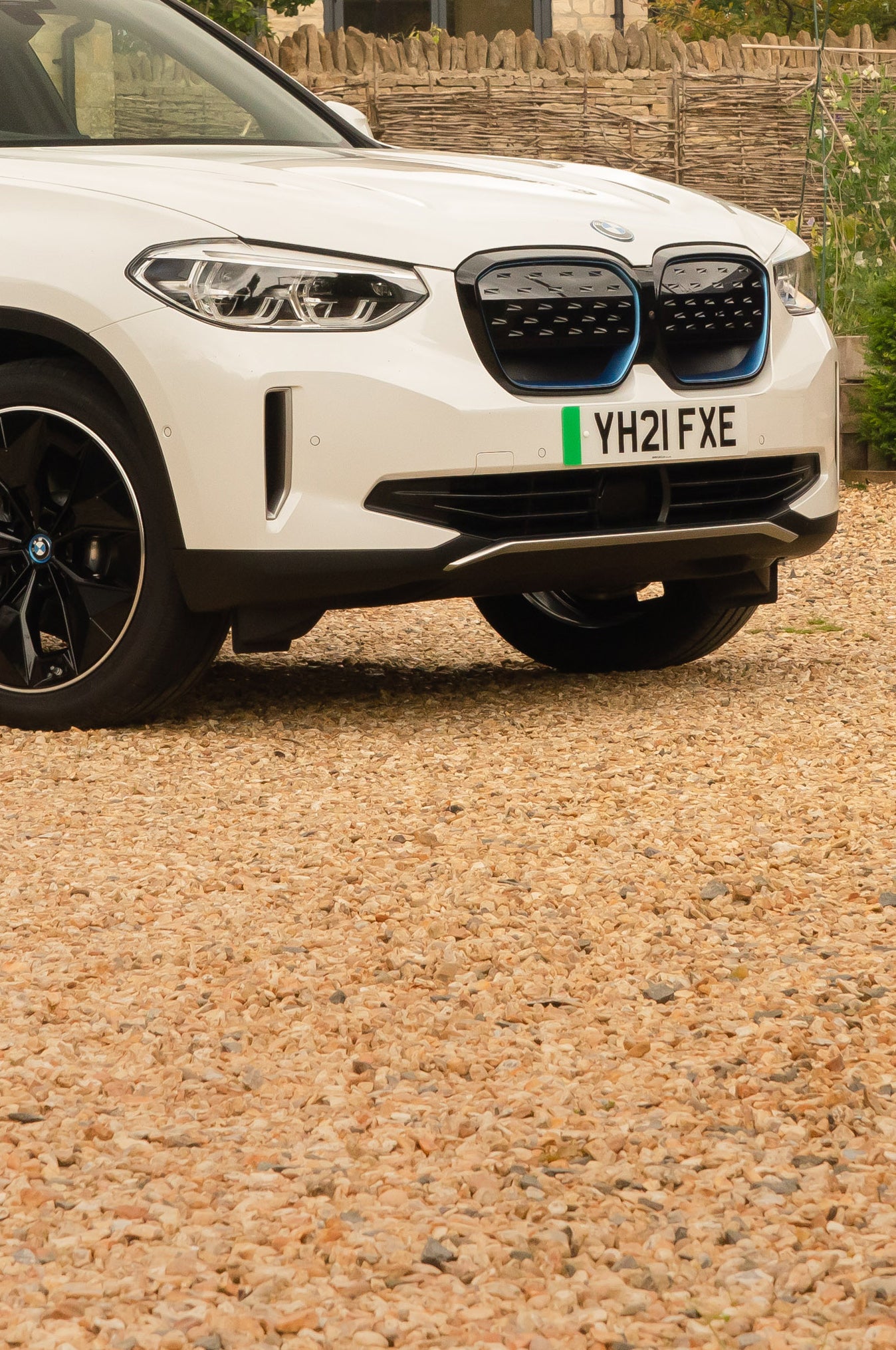
BMW electric cars 2024: the EV range explained
-
What electric cars does BMW make?
-
We test and rate the contenders
-
Find a BMW electric car for sale
BMW's electric car range has expended rapidly in recent years, but the company has a history of innovative EV offerings over the last decade or so.
Many see BMW as quite a traditional brand, trading on its 'Ultimate Driving Machine' tagline with a range of powerful, fun-to-drive petrol and diesel cars. Many forget, though, that while BMW wasn't the first company to offer an electric car to the mass market, it was among the first, and the last few years have seen the addition of many more under the company's 'i' sub-brand.
The first 'i' model was the i3, which launched way back in 2013 when most electric cars (EVs) were undesirable and not remotely fun to drive. It was a bit of a revelation, with a radical design, stunning interior and clever carbon-fibre construction. Like many innovative products, it wasn't a sales success at first, but it became more popular throughout its life before finally ending production in 2022.
Just before Tesla had delivered its first Model S in the UK, the i3 proved electric cars didn't need to be slow and (thanks to BMW offering a range-extender model) only suitable for pottering about town. But BMW didn't stop there, stunning the performance car world with the dramatic i8 sports car.
Using the same carbon fibre construction as the i3, the i8 was a little different because it wasn't a full EV. BMW instead innovated with its first plug-in hybrid powertrain (one that remains unique in the sports car sector to this day). Its clever mid-engined design combined with those striking looks and scissor doors made it a groundbreaking machine.
Since then BMW (along with all of its rivals) has gone big on plug-in hybrids, from the hugely popular 3 Series to the behemoth X5 SUV. But, most recently, the company has rapidly expanded its fully electric offerings. In this article we look at its nine 'i' models and examine what they offer to the market.
BMW electric cars 2024
1. BMW i3
Year launched: 2013

The car that started it all for BMW's i division, the i3 came at a time where even the best electric cars on the market, such as the Nissan Leaf, were pretty dull. Not just to look at, but to drive, too. The i3 changed all that.
Although its styling didn't win universal praise at first, the striking i3 was clearly a forward-thinking car, with its unique exterior shape, rear-hinged back doors and advanced body construction, the car being fashioned largely out of CFRP, or Carbon Fibre Reinforced Plastic. It was also one of very few EVs to be offered with back-up power: a small petrol 'generator' engine in the i3 REx (Range Extender) to rescue you if you've run out of battery juice.
The interior, too, is futuristic, with an elegant minimalist design and clever use of sustainable materials. It isn't as practical as a similarly priced petrol or diesel BMW, however, with a fairly small boot and rear doors which won't open unless the fronts are opened first.
To drive, though, the BMW i3 was (and still is) fun and perfect for darting about town in, with great forward visibility, quick steering and real agility. Sure, its 170PS (181PS in the sportier i3s) might not seem like much, but the lightweight construction means the i3's performance still feels sprightly today. The ride is firm, although it was improved on 2018-on models.
The i3 went out of production in 2022, but used examples still represent a great way into electric motoring.
2. BMW i4
Year launched: 2021

If the BMW iX is aimed at the Tesla Model X, there's no prizes for guessing which of Elon Musk's models the i4 is targeting (yes, it's the Model 3).
The BMW i4 is, we reckon, a more complete all-rounder than the Tesla. Although it's based on an internal combustion engine platform, BMW's engineers have worked their magic, making the i4 huge fun to drive and yet very comfortable and refined. It really is the best of both worlds.
And that doesn't just apply to the rapid 544PS M50 version, as the more affordable i4s are still sharp and agile. The current mid-range model – the eDrive40 – manages an impressive 365 miles on a charge, too.
What's more the i4 has a brilliant interior. Sure, it could do with a bit more space for rear seat passengers, but in terms of quality and technology – it uses the same new-generation iDrive system as the iX – it's class-leading. Our only real complaint? Like the iX, the i4's looks might not be too everyone's taste.
3. BMW i5
Year launched: 2023

Take the excellent BMW 5 Series saloon, and make it electric. That's essentially the story of the i5, although obviously there's a heck of a lot of complex engineering that goes into making that simple brief a reality.
The result, though, is tremendous. The now-hallmark BMW cabin quality is as good as ever and loaded with excellent tech, and the i5 is fantastic to drive, with excellent performance from a choice of two electric powertrains, coupled with agile handling and splendid refinement. The boot suffers from battery ingress compared to the petrol and diesel 5 Series range, but not by much, and besides, there's an i5 Touring estate model if you need more space.
Power come from a single 83.9kWh battery pack, with 81.2kWh of usable capacity. There’s a little more variety in the motors. Both the eDrive40 and the M60 xDrive get a 340PS electric motor on the rear axle, but the M60 adds a 261PS motor for the front wheels too, for a combined 601PS total and of course, all-wheel drive. That gives it very rapid acceleration to 62mph – 3.8 seconds, compared with a still-quick 6.0 seconds in the eDrive40.
Ultimately, the i5 is a deeply impressive car that should appeal to existing 5 Series owners as well as those new to the brand.
4. BMW i7
Year launched: 2022

Luxury limousines don’t get any better than the BMW i7. It delivers peerless comfort and refinement and it has the quality to make rivals feel positively second-rate. It's extremely expensive, but if your pockets are deep enough, it also offers a level of technology and entertainment functionality that’ll make your jaw drop. Even without all that stuff, it’s still the best car of its type.
Any luxury limo needs to have the quality and attention to detail to make its occupants feel like they’re travelling in first class, but the BMW i7 has a plushness that outshines the Audis and Mercedes it competes with. There’s acres of space to stretch out, and even in standard form, there’s a lot of luxury kit to keep you comfortable and entertained.
The way the car drives will also make you feel like a high-roller. Even the entry-level eDrive50 has 455PS and will reach 62mph in just 5.5 seconds. Upgrade to the 544PS xDrive60 and the benchmark sprint time drops to 4.7 seconds, while the top-of-the-range M70 xDrive, with 659PS, manages it in just 3.7 seconds. With these huge amounts of near-silent electric propulsion at your disposal, plus a suspension that isolates you from the vulgarities of the road surface and a cabin that shields you from the noises of the outside world, you’re whisked along in effortless comfort and serenity, with only the temptations of the car itself to distract you from your business.
5. BMW i8
Year launched: 2014

Okay, so the BMW i8 isn't a fully electric car, but it needed including in this list for how it revolutionised hybrid power. The technological pioneer will likely be considered ahead of its time as more and more sports cars and supercars move to petrol-electric propulsion.
It's a shame the i8 never enjoyed the success it deserved. Although it ceased production in 2020, ts bold looks still look modern to this day, and it uses the same CFRP construction as the i3. The engine is a mid-mounted three-cylinder unit from a MINI, but it's boosted to 231PS and combined with a 131PS electric motor powering the front wheels.
Mated to a 7.1kWh battery that could be charged up at home and offers 22 miles of electric-only running, the plug-in hybrid i8 was a novel choice in the sports car sector: only now are companies such as McLaren and Ferrari also embracing PHEV power.
The BMW i8 was nowhere near as fast as today's hybrid supercars, and it wasn't particularly practical either. But its low weight and engaging handling still made it fun to drive. It's a nailed-down future classic, the i8.
6. BMW iX1
Year launched: 2023

BMW's smallest all-electric SUV looks sharp, is easy to drive and has a stunning interior. But it it's also satisfyingly normal, which means it won't feel like a shock to the system when you trade in your Nissan Qashqai.
The BMW iX1 is, in effect, an indirect replacement for the i3, putting all-electric capability in a compact package. Based heavily on the petrol and diesel-fuelled X1, it takes on cars like the Audi Q4 e-tron, Mercedes EQA and Volvo XC40 Recharge and comes with one of two electric powertrains giving either 204PS or 313PS.
That makes it quick, but its also quiet and refined. The car also has a beautiful interior and a good amount of standard features across three trim levels. It is on the pricey side, however, even against premium electric opposition, and by some way over the regular X1.
Hiding the weight of the BMW iX1's batteries poses a challenge for even the most talented of engineers. As such, it doesn't feel as agile (or ride as well) as a petrol BMW X1, but it really isn't far behind, and it's not lagging behind the competition, either.
7. BMW iX2
Year launched: 2024

Think that the BMW iX2 is simply an iX1 that's had its roof kicked in a bit? Well, you'd be wrong. Yes, it offers a more rakish, coupe-like roofline compared with that of its boxier brethren, but the differences go way deeper than that. In fact, the only two external parts that the two cars share are the door mirrors, believe it or not.
You might not believe that the iX2 has a bigger boot than the iX1, either, but it does. The iX2 is 54mm longer than its stablemate, and all of that has gone into the car's rear overhang, giving 525 lites of boot space to the iX1's 490 litres. Who said you had to sacrifice practicality in the pursuit of style? Well, us, actually. Rear headroom is severely compromised by the iX2's sloping roofline, making it less practical overall, and rear visibility is also very restricted.
It shares many of the iX1's other strengths, though, including the same powertrains, a front-wheel-drive one with 204PS and a four-wheel-drive one with 313PS. Both are great: the former is brisk, the latter is seriously rapid. And if anything, the iX2 is even better to drive because it's only offered in high-end M Sport trim, and that means that it comes as standard with adaptive suspension, which gives a brilliant balance of comfort and control. Chuck in the plush interior and generous kit, and you have a very appealing package.
8. BMW iX3
Year launched: 2021

The BMW iX3 isn't as radical as the iX, with BMW instead playing it safer by taking the popular X3 SUV and turning it into an electric vehicle. As such, it looks pretty much as you'd expect, so no controversy here.
The iX3 rivals the growing crowd of premium electric SUVs, from the Audi Q8 e-tron to the Mercedes EQC and Jaguar i-Pace. However, unlike pretty much all of its rivals the iX3 is rear-wheel drive only. While that may mean it won't take you very far off the beaten track, few electric SUVs ever do anyway, and on the road it's more rewarding to drive than the competition. Despite 'just' having 286PS, meaning it's a bit slower than its four-wheel drive rivals, the handling is agile and enjoyable, although the ride is on the firm side.
Elsewhere, it's basically the X3 we know and love, with a practical and well-finished interior plus a great infotainment system. It also manages a respectable range from its 80kWh battery of up to 292 miles, with excellent efficiency maximising what you get from each charge. At £65,000, it isn't cheap, but it is more affordable than some rivals. Why not see if you can save money on a nearly new model on heycar?
9. BMW iX
Year launched: 2021

BMW certainly hasn't played it safe with the styling of the iX. In fact, we can't think of a more controversial SUV in recent years. But like the brand's Marmite efforts in the mid-2000s, we reckon the iX's striking exterior look will age well as people get used to it.
Look past that outlandish exterior and there's loads to like with the iX. Unlike some rivals it was designed from the ground up to be an electric car, meaning it's brilliantly packaged and delivers X7-like interior space in an X5-sized footprint. It also gets a fantastic interior unlike any BMW before it, with an elegant design, super luxurious materials and the latest iteration of the BMW iDrive infotainment system.
It's great to drive, too. The focus is on comfort and refinement rather than outright fun, and the iX is really cosseting: you could spend hours behind the wheel and emerge feeling fresh as a daisy. But the flip-side is composed handling and startling performance, particularly in the crazy-fast (and crazy expensive) 619PS M60 version.
More down-to-earth models are available, with the range kicking off at just over £70,000 for the 326PS xDrive40 model. The middling xDrive50 model promises a range of up to 380 miles - impressive for a 2,500kg behemoth - and charging speeds of up to 195kW, meaning this is a thoroughly up-to-date electric SUV.
Up until 2021, BMW's only electric car was the i3. The company finally expanded its range after that, and pretty rapidly. As of the end of 2023, new electric BMWs available to buy include the i4, i5 and i7 saloons, the iX1, iX2 and iX3 SUVs and the iX luxury SUV. Although the i3 went out of production in 2022, that still leaves a good selection of BMW EVs – and more will be on the way.
By far the cheapest BMW electric car to buy used is the i3, which has been on sale for nearly a decade. Early examples with about 60,000 miles on the clock start from as little as £6000. In terms of a new BMW electric car, the iX1 starts from just over £46,000.
The BMW i3 is a fully electric car. However, it was sold for some time with the option of a petrol powered range extender engine – called the i3 REx – which allowed an owner who'd run out of battery charge to get home or to a charging station. Technically speaking, this was a range extender hybrid.
Will BMW go all-electric?
Over the next few years BMW plans to have an electric model in all the most popular segments, with several in its range. BMW as a group – includingt the BMW, MINI and Rolls-Royce brands – wants more than 50% of its global car sales to be all electric by 2030. For the BMW brand specifically, it says it plans to go "into a new consistently all-electric era" from 2025.
Will the BMW i8 be a future classic?
We're willing to go out on a limb here and say yes. While i8s did depreciate heavily (like most high-end BMWs), it didn't sell as well as rivals, so there will be fewer around in the years to come. It's also quite a significant car, being the first plug-in hybrid sports car, and its dramatic looks should make it really sought after as time goes on.
What is BMW Approved Used?
The BMW Approved Used scheme allows buyers of second-hand cars to get many of the same benefits as new car buyers. You get the same BMW franchised dealer service is you would a brand new car, while the used cars they sell get a rigorous inspection and a 12-month warranty. If the car needs to be MOT'd in that time, BMW will pay for any resulting work that's required.
Loading...
More electric and hybrid car guides
Whether you're looking for advice on what hybrid car to buy or looking to find your next EV, we've got the answer
